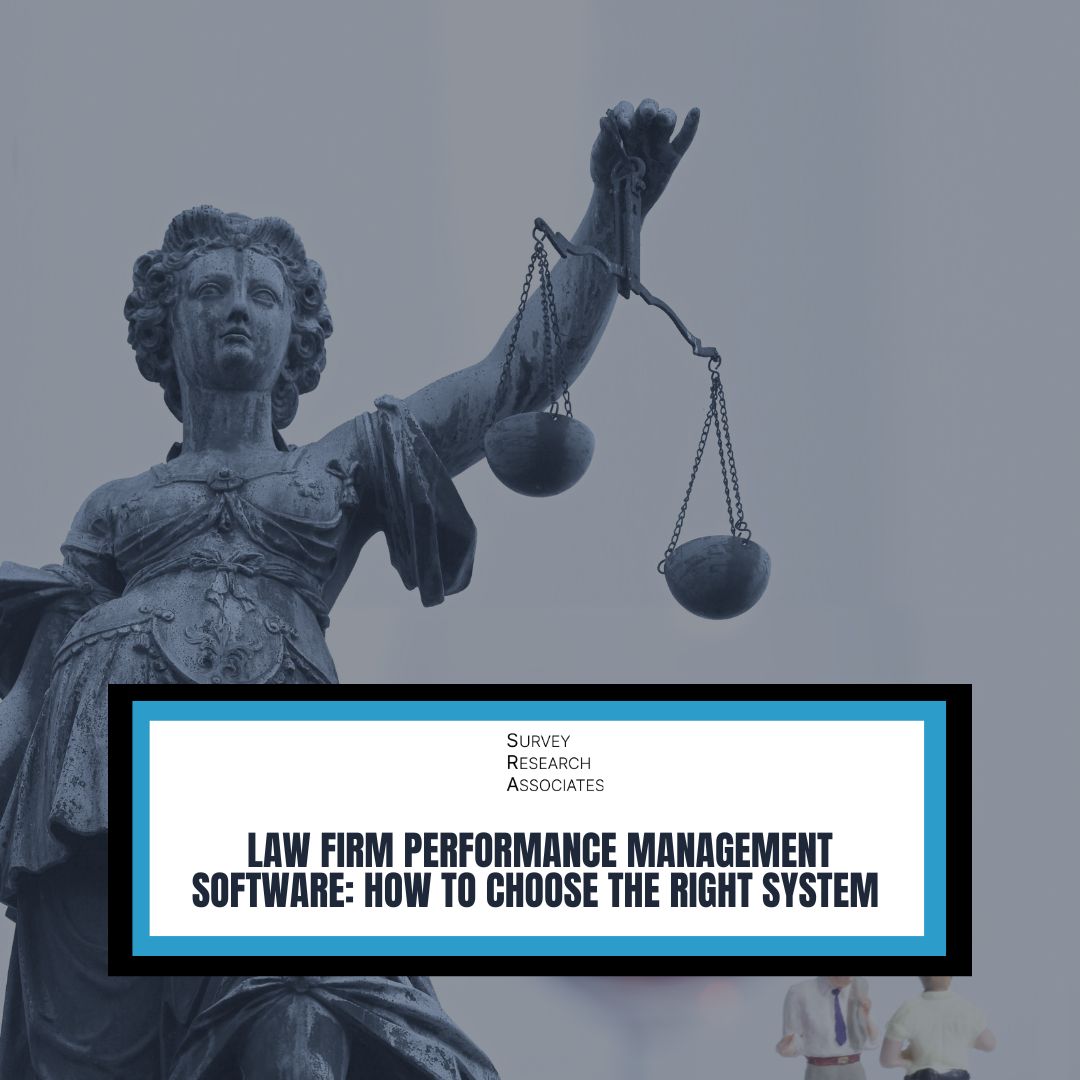In many law firms, partnership decisions still follow an outdated formula:
Billable Hours + Business Originations = Promotion.
While this model rewards productivity and rainmaking, it often ignores what truly defines a great leader — mentorship, team-building, client management, inclusivity, and firm citizenship.
Because of this narrow focus, firms risk promoting high performers who lack leadership readiness, and overlooking those who quietly shape culture and develop talent. The result? Low morale, associate attrition, and diversity gaps at the top.
At Survey Research Associates (SRA), we work with firms that want to change that. Upward reviews — structured feedback from associates and other junior lawyers — help decision-makers gain a 360-degree view of leadership performance. When done right, they make promotions more fair, transparent, and aligned with long-term firm health.
Here are 7 ways upward reviews help law firms move beyond “hours + originations = partner.”
1. Surface Leadership Behaviors You Can’t Measure in Hours
Normally, partners are evaluated on tangible metrics. But leadership is about how they lead — not just what they do.
Upward reviews capture data on:
- Respectful communication
- Delegation and feedback habits
- Inclusivity and psychological safety
- Support for career development
These behaviors shape associate experiences and firm culture, yet rarely appear in traditional evaluations. With upward feedback, law firms measure what matters — not just what’s easy to count.
According to an SRA benchmark report, 61% of associates said their input on leadership was never part of promotion decisions.
2. Reduce Bias in Promotion Decisions
Because law firms rely heavily on informal sponsorship, unconscious bias can creep into promotion conversations — especially when leadership potential isn’t documented.
Upward reviews introduce structured, multi-rater input from those who experience a partner's behavior daily. This data helps counteract:
- Affinity bias
- Recency bias
- “Loudest voice in the room” effect
Besides increasing fairness, this improves trust in the promotion process, especially among underrepresented groups.
3. Align Promotions with Cultural Values
Firms say they value teamwork, mentorship, and inclusion — but those values must show up in how they reward leaders.
By embedding upward review themes into promotion criteria, firms reinforce the culture they want to build. This means recognizing:
- The partner who mentors women of color
- The team leader who creates stretch opportunities for juniors
- The quiet ally who fosters belonging in the practice group
Because values are more than mission statements — they’re choices.
4. Spotlight Silent Leaders Who Don’t Self-Promote
Not every future leader has a loud voice or a self-advocacy instinct. Some make their impact quietly — mentoring behind the scenes, managing team dynamics, or creating space for others.
Upward reviews amplify associate perspectives, bringing visibility to these high-impact contributors. As a result, firms avoid overlooking top leadership talent due to lack of self-promotion or internal politics.
5. Identify Development Needs Before Promotion
Promoting someone without insight into how they manage others is risky.
Upward reviews act as an early warning system. They flag patterns like:
- Micromanagement
- Poor delegation
- Lack of inclusivity
- Emotional volatility
Instead of promoting and then correcting, firms can coach and develop leaders ahead of time — increasing success rates and reducing missteps in partner roles.
Firms that integrate upward reviews into leadership coaching see a 34% increase in post-promotion performance ratings, according to internal SRA data.
6. Strengthen Associate Buy-In to Promotions
When associates see that their input matters — and that promotions reflect more than business development — they trust the system more.
Upward reviews help explain why someone was promoted (or not) with more clarity and less speculation. This reduces resentment and cynicism, especially in firms where partnership decisions are historically opaque.
Because when people believe the system is fair, they’re more likely to stay and grow within it.
7. Build a Leadership Pipeline Based on Impact, Not Politics
Besides fairness, upward reviews support long-term succession planning. They identify not just who is producing today, but who is building teams, retaining talent, and driving firm culture.
This enables firms to:
- Track leadership readiness over time
- Provide targeted coaching or mentorship
- Ensure diversity in the next generation of leaders
At SRA, we’ve helped firms integrate upward feedback into partner readiness dashboards — giving leadership teams data-driven views of future leaders, not just assumptions.
Let’s Redefine What Leadership Looks Like
Firms don’t succeed because of the number of hours billed. They succeed because of the leaders who build trust, develop others, and shape the future. Upward reviews ensure those leaders get recognized — and elevated.
Schedule a demo with SRA to see how upward reviews can support a fairer, smarter approach to promotions.


